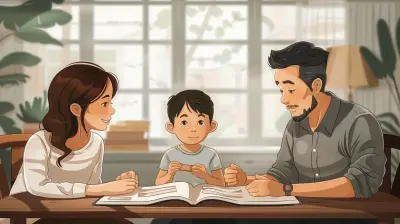The Pitfalls of Comparing Your Child to Others
15 June 2025
Let’s face it—as parents, we all want what’s best for our kids. We cheer them on in soccer games, sign them up for music lessons, and celebrate their smallest victories. But there’s this sneaky little habit many of us fall into without even realizing it: comparing our child to others.
It usually starts innocently. Maybe your friend’s kid is reading chapter books at five, and yours is still working through the alphabet. Or perhaps you see glowing report cards, Instagram-worthy craft projects, or viral piano recital videos and start to wonder, “Why isn’t my child doing that, too?”
Here's the thing: comparing your child to others can do more harm than you think—not just to your child, but to you, too.
Let’s dig into why comparison is a slippery slope and what you can do instead to foster your child’s unique growth and confidence.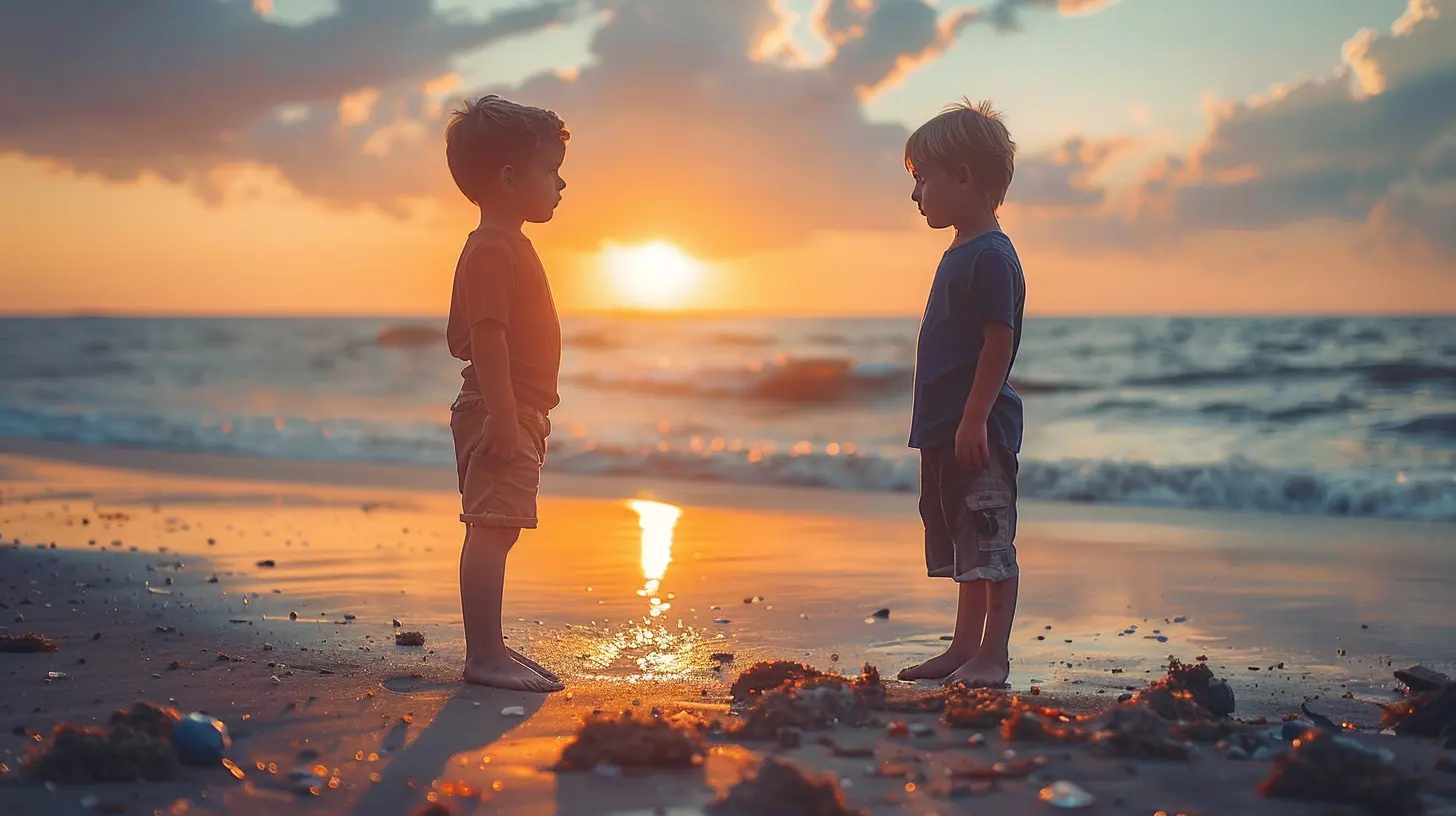
Why We Fall Into the Comparison Trap
It's Human Nature
Comparing is something we’re kind of hardwired to do. It’s part of how we gauge progress and understand the world. But when it comes to parenting, these comparisons often come with a side of guilt, anxiety, and unrealistic expectations.You might compare your child’s milestones, behavior, or achievements to other kids in the neighborhood, at school, or (let’s be honest) on social media. It’s not because you’re a bad parent—it’s because you care. But comparison turns that care into pressure.
Social Media Isn’t Helping
Let’s talk about the elephant in the room—social media. Instagram, TikTok, Pinterest... all packed with highlight reels of other families’ lives. You see the perfect science project, the super organized lunch box, the smiling kids who seem to ace everything. But what you don’t see is the tantrum before the photo, the frustration while doing homework, or the parent behind the camera who’s also worrying they’re not doing enough.Comparisons based on carefully curated snapshots? That’s a recipe for self-doubt and unnecessary stress.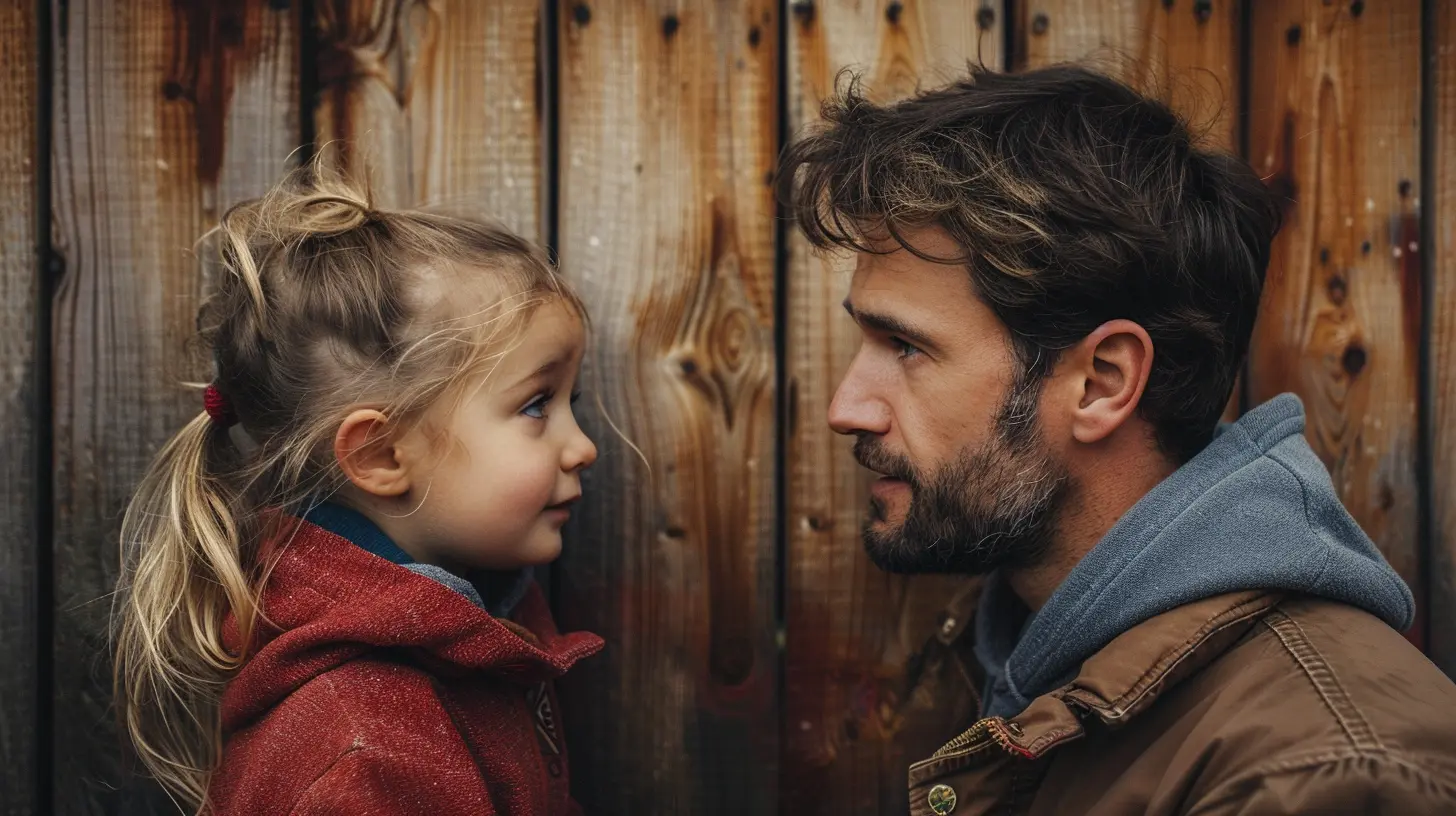
The Negative Effects of Comparison on Your Child
When we compare, we're unintentionally sending messages to our kids—some of which can stick with them for a long time.1. It Chips Away at Their Self-Esteem
Imagine constantly hearing that someone else is better at something you’re trying your best at. Over time, a child starts to internalize that they’re not good enough, that they’re always falling short. That sense of “I’m not as smart/talented/funny” can cause a real dent in their confidence.Every child blossoms at their own pace. One might talk early, another might run fast, and another might have a deep sense of empathy. When we compare them to their peers, we make them feel like they're being judged on someone else’s timeline.
2. It Creates Unhealthy Sibling Dynamics
If you’ve got more than one child, you’ve probably caught yourself saying, “Your brother never did this at your age,” or “Why can’t you be more like your sister?” It happens. But those comparisons can create sibling rivalry, resentment, and a sense of inadequacy.Your kids don’t want to be carbon copies of each other—they each have their own personality, strengths, and struggles. Letting them know they’re appreciated for who they are individually helps them thrive.
3. It Puts Pressure On Instead of Encouragement
Kids can sense when they’re being compared—even if it's subtle. They might start feeling like they need to perform just to keep up or make you proud. That pressure can take the joy out of learning or trying new things. Instead of exploring what they love, they start doing things out of fear of falling behind.Wouldn’t you rather your child be curious and passionate rather than anxious and overwhelmed?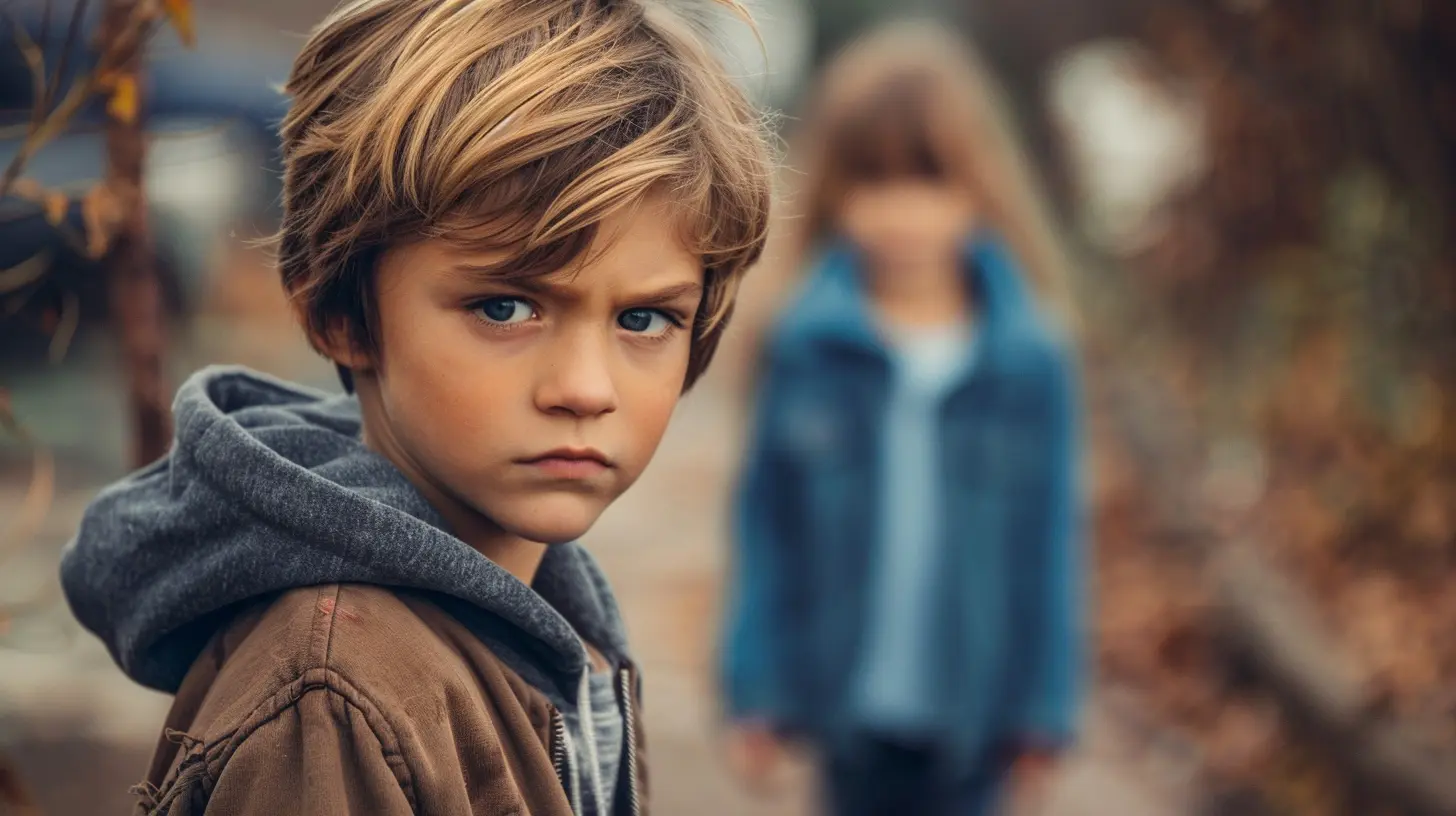
The Damage to Parents: Comparison Hurts You Too
Parenthood is already a tough gig. The last thing you need is to feel like you’re in a never-ending competition.You Start Doubting Your Parenting
Ever thought, “Maybe I’m doing something wrong,” after hearing about another child’s achievement? That self-doubt sneaks in and steals your joy. You start obsessing over developmental milestones, googling every behavior, or second-guessing your instincts.But here’s the truth: there is no one-size-fits-all when it comes to raising kids. What works for someone else’s child might not work for yours—and that’s okay.
It Sucks the Joy Out of the Journey
Parenting isn’t about hitting all the marks or raising a “perfect” child. It’s about connection, laughter, silly moments, and learning together. When you're constantly comparing, you're too busy measuring to actually enjoy the milestones when they come.Your child took their first steps a bit later than your friend’s kid? So what. When they did it, wasn’t it magical? That’s what matters.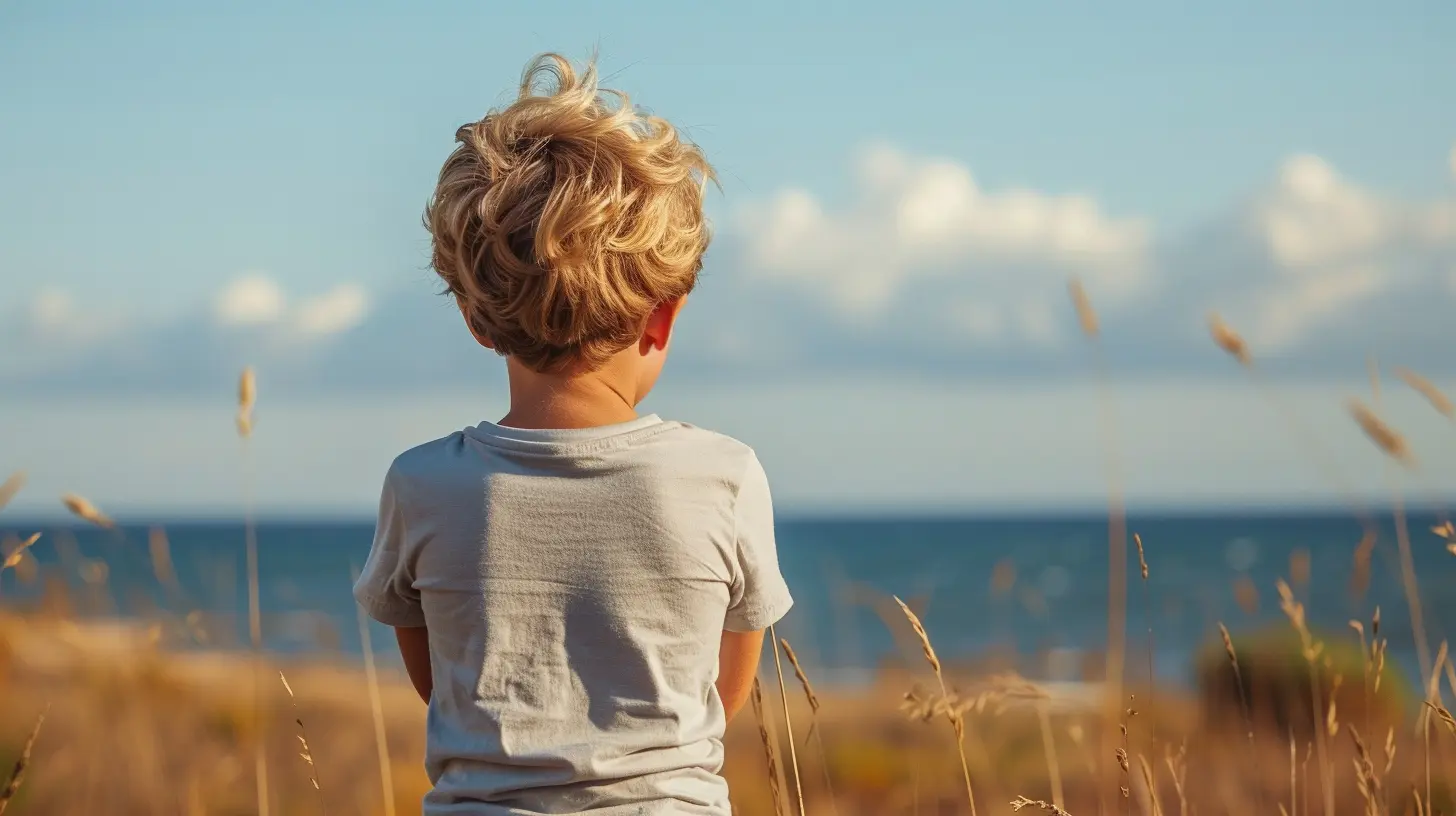
What to Do Instead: Boosting Your Child and Yourself
So, how do you break free from the comparison trap? It’s not always easy, but it’s worth it. Here are some ways to reshape your mindset and create a positive impact for your child and yourself.1. Celebrate Progress, Not Perfection
Focus on how far your child has come, not how far behind they seem compared to others. Maybe your child struggled with reading but now enjoys bedtime stories. That’s huge! Celebrate their wins, big or small.Progress is personal. Growth isn’t a race; it’s a journey.
2. Embrace Individuality
Instead of thinking “Why isn’t my child like that?”, shift to “What makes my child unique?” Maybe they have a wild imagination, a knack for building things, or a heart of gold. These qualities might not win trophies, but they’ll shape the amazing adult they’ll become.Encourage your child to explore what they love—not what others are doing.
3. Be Their Safe Place
Kids need to know they’re loved just as they are. That doesn’t mean lowering expectations or avoiding discipline—it means being their biggest fan no matter what. Celebrate effort, not just outcomes. Say things like, “I’m proud of how hard you worked,” or “I love the way your mind works.”When kids feel secure, they’re more likely to take risks, learn from mistakes, and grow into confident humans.
4. Limit the Social Media Spiral
Let’s be blunt: social media isn’t reality. If scrolling makes you feel like you’re falling short, take a break or unfollow those accounts that spark insecurity. Instead, look for uplifting, honest communities where parents share the good and the not-so-good.You’re doing better than you think.
5. Talk About It
Comparison loses its power when you bring it into the light. Chat with other parents about your struggles—they're probably feeling the same way. Transparency builds connection. It also helps to talk with your child about feelings of insecurity, perfectionism, or jealousy. Teach them early that being different doesn't mean being less.Real Growth Happens in Unseen Moments
We often celebrate the big moments—graduations, awards, first words. But real growth? That happens in the quiet stuff. In the way your child comforts a friend, sticks with a tough puzzle, or shares their snack without being asked.These everyday moments won’t always make it to Instagram, but they matter. A lot.
When you stop comparing your child to others, you start seeing your child for who they truly are—not who you hope they’ll be, or who someone else is raising. And that’s the true magic of parenting.
Final Thoughts: Let Kids Be Kids
At the end of the day, childhood isn’t a checklist. It’s not a race to who walks, talks, or reads first. It’s messy, beautiful, unpredictable—and every bit of it is worth embracing.So, the next time you catch yourself comparing, pause. Breathe. Remember that your child’s timeline is the perfect one for them. And remind yourself that you’re the perfect parent for your child—not because you have it all figured out, but because you show up, love deeply, and keep learning along the way.
You’ve got this. And so does your kid.
all images in this post were generated using AI tools
Category:
Parenting MistakesAuthor:

Austin Wilcox
Discussion
rate this article
3 comments
Casey Riley
Thank you for this insightful article. It's so important to remember that each child has their unique journey and strengths. Comparisons can lead to unnecessary pressure and anxiety for both parents and children. Embracing individuality fosters a healthier, more supportive environment for growth and development. Appreciate your thoughts on this topic!
June 23, 2025 at 3:37 AM

Austin Wilcox
Thank you for your thoughtful feedback! I completely agree—embracing each child's uniqueness is crucial for their growth and well-being.
Jacob Newman
Comparing your child to others can undermine their unique strengths and self-esteem. Embrace their individuality, celebrate their achievements, and foster a nurturing environment that encourages growth and self-acceptance. Every child is on their own journey.
June 17, 2025 at 3:11 AM

Austin Wilcox
Absolutely! Celebrating each child’s unique journey is essential for their growth and self-esteem. Embracing individuality fosters a positive environment for their development.
Anna Mitchell
In a garden rich with blooms, each child a unique flower, Comparison dims their vibrant hues, steals away their power. Celebrate their singular grace, let love guide the way— In your heart, they’ll always stay.
June 15, 2025 at 3:58 PM

Austin Wilcox
Thank you for capturing the essence of celebrating each child's uniqueness! Your words beautifully convey the importance of love and appreciation over comparison.



